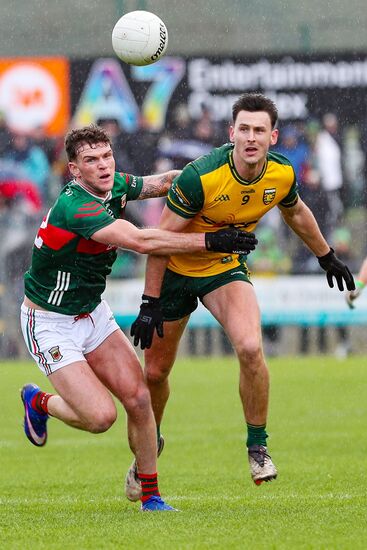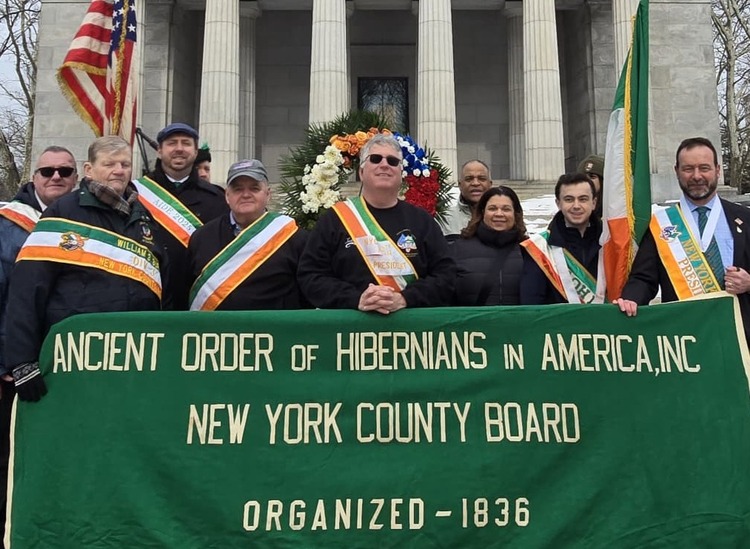By Peter McDermott
The Rev. Joseph Mulligan is the kind of person who can see the up side and the down side of a situation. It's a quality that has helped him in the 24 years he's worked as a pastor in Nicaragua.
He's had to deal with the fatalism associated with religion in Latin America, such as the idea "that God is inflicting all kinds of suffering on people" and other "generally very dehumanizing notions that are still very much part of the traditional religiosity of the people."
The Jesuit reminds people of the line from the Lord's Prayer that asks that God's will be done, which suggests that it is not being done.
But the church in Latin America is one, too, still inspired by the 1968 conference of bishops in Medellín, Colombia, that sought to introduce the ideas of Vatican II to the hemisphere and that condemned the "oppression of institutionalized violence" and "economic dictatorship and the international imperialism of money." The church leaders urged the religious to work for the "liberation" of the poor, who constituted the great majority of the populations of their countries.
Mulligan, whose maternal grandparents were from West Clare (his father's roots in Ireland proved hard to trace), had by that stage already spent five years as a seminarian with the Society of Jesus and was swept up with an enthusiasm for Vatican II.
In an earlier time, the late 1940s and 1950s, he'd been impressed with the priests and nuns he encountered in Our Lady of Mount Carmel, a large parish in Astoria, Queens, though the nuns were often less than enamored with his behavior. He got good grades, nonetheless. When he was 14, his father got a job promotion and the family moved to Detroit.
The idea of a vocation had been raised a few times when Mulligan was at the Jesuit-run University of Detroit High School, but he went on to the University of Detroit Mercy with vague notions of becoming a doctor. "I admired it as a caring profession," he said, though believes in retrospect that he was resisting the idea of joining the Jesuits. "I put it in the back of my mind," he said.
The turning point came in his sophomore year while making the mandatory annual retreat. "I was sitting in the back pew, reading organic chemistry," said Mulligan, a reluctant participant because he was behind in his course work. "I can't recall if it was something he [the priest] said, but I thought: 'Maybe this is the time to deal with it.' That was it. That was the crucial moment. Within a few months, in August of 1963, I was in the novitiate."
He was 20.
"To me it was interesting: the idea of freeing yourself and liberating yourself to considering something like that seriously and honestly," Mulligan said, "and feeling called."
It was an exciting time to be entering the priesthood, he said. "It was an era of renewal in the church in relation to theology, to Bible studies, to church history, to liturgy."
He added: "I was also blessed that my novice director was brand new to the job and he was just filled with the spirit of Vatican II."
It was also a time of upheaval in America. The Chicago-based Mulligan became involved in the anti-Vietnam War and Civil Rights movements. Appalled at the broadening of the war and the slaughter of civilians, he became one of the Chicago 15, who on May 25, 1969, removed draft-board files from offices on the South Side and destroyed them. Their mission accomplished, the protesters waited for the police to arrive and then surrendered. The seminarian called his parents from Cook County Jail.
"They were upset and concerned for my welfare and my future," Mulligan recalled.
After a month-long trial in 1970, he was sentenced to five years in prison and with another five years probation. He was released on parole in 1972.
"It could have been a lot worse," he remembered of his time at the facility at Sandstone, Minn., which is 90 miles north of the Twin Cities.
The most unpleasant aspect of the incarceration was the feeling of being cut off from his parents and his sister and her family.
Two years in prison could potentially be very destructive, he said, "but it was a period of growth for me, as it often is for political prisoners and prisoners of conscience."
He was ordained by Bishop Thomas Gumbleton in 1973. Gumbleton, who became a Mulligan family friend during the years of his imprisonment, is just one of the several church figures the Jesuit cited as inspirations. He's an admirer of the liberation theologian the Rev. Ernesto Cardenal, who was appointed Nicaragua's first ever minister of culture following the Sandinistas' revolution in 1979. (Cardenal broke with Daniel Ortega in 1994 to form the Sandinista Renovation Movement.)
The priest also mentioned the Ecuadorian theologian the Rev. Leonidas Proaño, who became known as the "bishop of the Indians"; El Salvador's Archbishop Óscar Romero, who was murdered by his nation's military in 1980, and Jim Carney, a fellow Irish-American Jesuit, a presumed victim of the Honduran military in 1983, whose case, as reported in the Echo, he has pursued on behalf of family members in the years since.
Romero and Carney are just two of the almost 900 religious who died violently while struggling for justice in Latin America during the 1970s and 1980s.
Mulligan still believes strongly that the religious tradition has a role to play in human liberation. "There's a long way to go," he added.
Asked if his own religious views have altered over the decades, Mulligan said: "My spiritual foundation for that kind of commitment and involvement has become stronger, more solid, through reflecting on Scripture, especially reflecting on the Gospels, trying to place myself, as Ignatius says, in the Gospel scenes, hearing the words of Jesus and those of others and then asking 'Well, what does that mean to me?'"
[PHOTO BY PETER MCDERMOTT Joseph Mulligan pictured in a study in the Jesuits' residence in Managua.]









